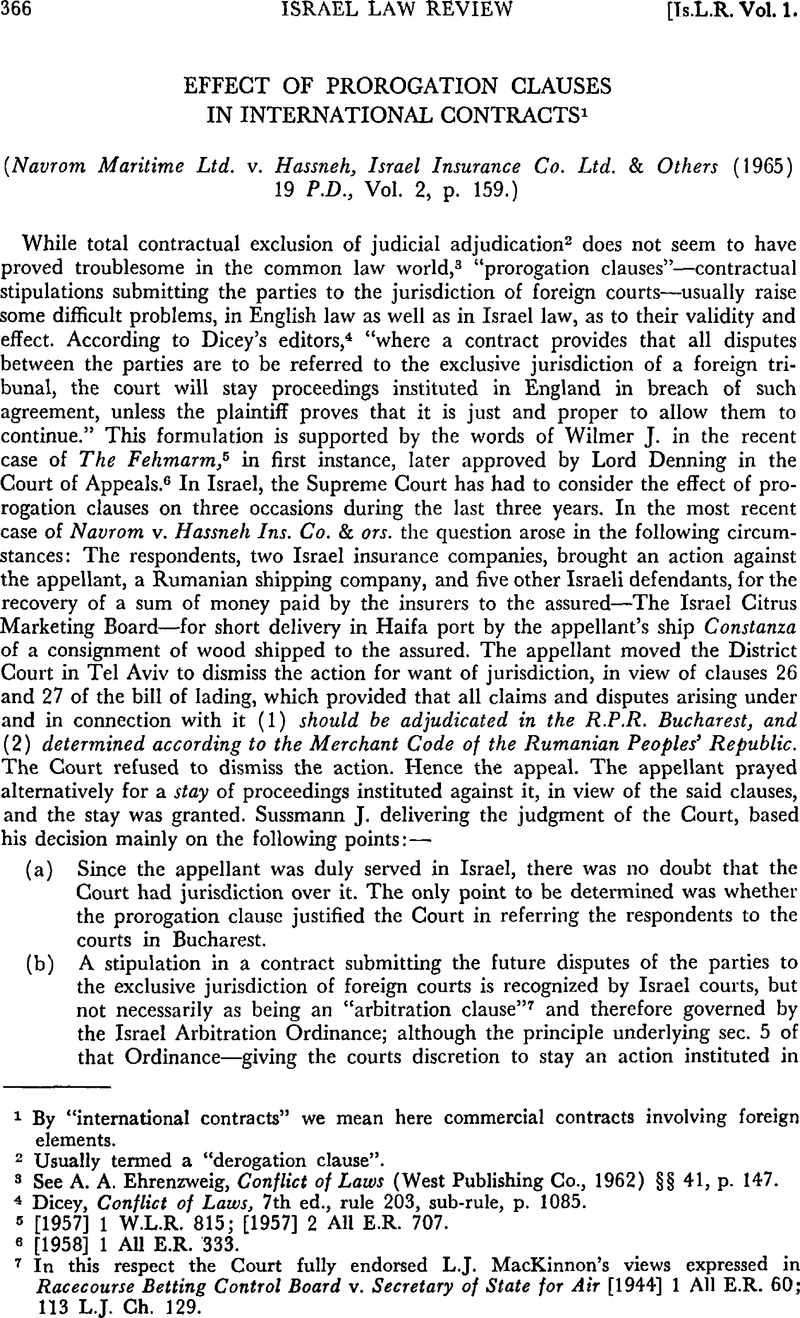No CrossRef data available.
Article contents
Effect of Prorogation Clauses in International Contracts1
Published online by Cambridge University Press: 12 February 2016
Abstract

- Type
- Cases
- Information
- Copyright
- Copyright © Cambridge University Press and The Faculty of Law, The Hebrew University of Jerusalem 1966
References
2 Usually termed a “derogation clause”.
3 See Ehrenzweig, A. A., Conflict of Laws (West Publishing Co., 1962) §§41, p. 147.Google Scholar
4 Dicey, , Conflict of Laws, 7th ed., rule 203, sub-rule, p. 1085.Google Scholar
6 [1957] 1 W.L.R. 815; [1957] 2 All E.R. 707.
6 [1958] 1 All E.R. 333.
7 In this respect the Court fully endorsed MacKinnon's, L.J. views expressed in Racecourse Betting Control Board v. Secretary of State for Air [1944] 1 All E.R. 60Google Scholar; 113 L.J. Ch. 129.
8 Under rr. 467(5)(a) and 467(5)(c) of the new Israel Rules of Procedure, 1963. (While the submission to the “proper law” of Israel is expressly provided for; we doubt whether this is the case for submission to Israel jurisdiction.)
9 Cf. Johnson v. Machielsne (1811) 3 Camp. 44, 170 E.R. 1300, where Lord Ellenborough expresses his views as to the propriety of clauses of jurisdiction imposed by the authorities.
10 See Hoerter v. Hanover Caoutchouc, Gutta Percha & Telegraph Works (1893), 10 T.L.R. 22, 103, (C.A.).
11 (1965) 19 P.D. Vol. 1, p. 303.
12 Supra, n. 6.
13 (1963) 17 P.D. 646. (For a full commentary by the author on this case, see (1963) 20 HaPraklit, 24.)
14 Cohn J. also stressed the penal and discriminatory character of the decree.
15 [1939] 4 All E.R. 16.
10 Supra, n. 7.
17 Sussmann J. expressly adopted this proposition in his detailed judgment, op. cit., at p. 165.
18 Cf. Oppenheimer v. Louis Rosenthal Co., [1937] 1 All E.R. 23, 25–26, where Slesser J. makes use of the term.


